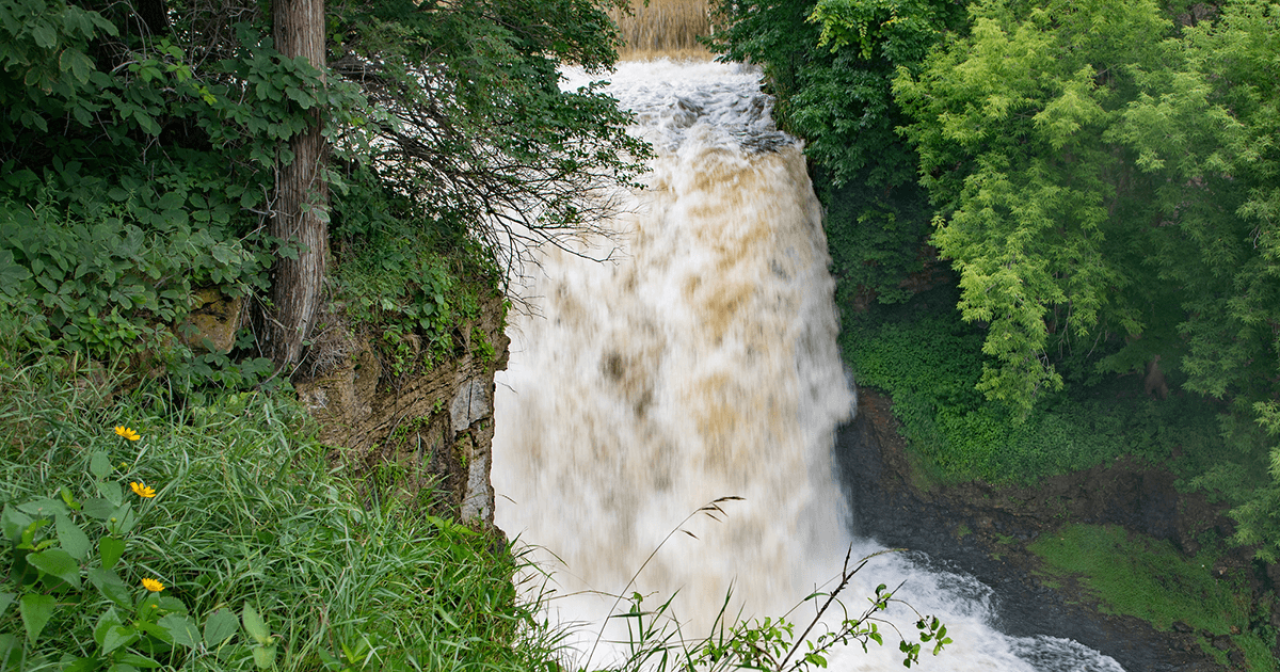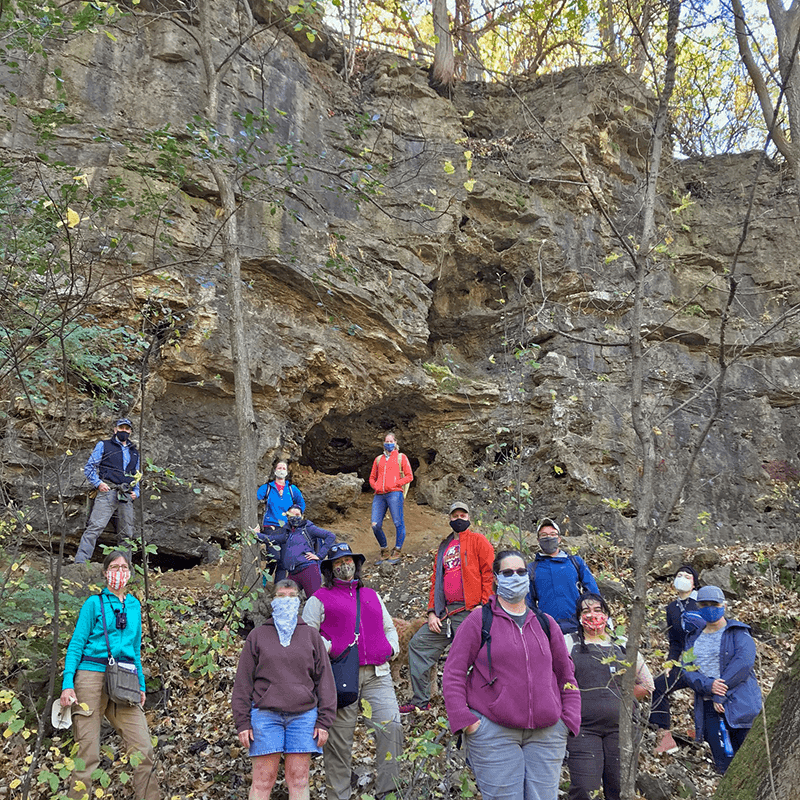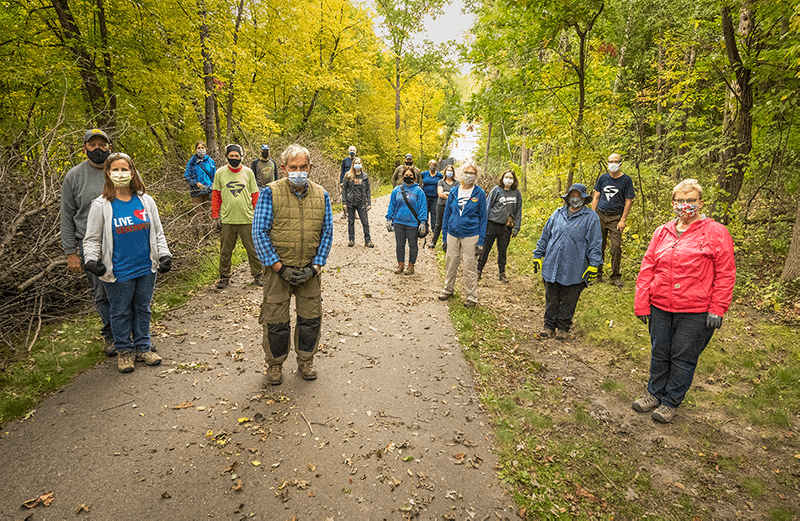Vermillion Falls Park

Where is Vermillion Falls Park?
Vermillion Falls Park is a 25-acre city-owned park in Hastings. It's the central city park in a string of connected greenspaces along the Vermillion River, flanked by Old Mill Park downstream and Vermillion River Linear Park upstream. Further downstream, you'll find Hastings Scientific and Natural Area and Gores Pool Wildlife Management Area, where the Vermillion River reaches the Mississippi. This park is also just a few miles southwest of the Mississippi River's confluence with the St. Croix River.
The public is welcome to visit Vermillion Falls Park and its nearby trail system. (See the City of Hastings' website for more info.)
Our work here takes place on Dakota homelands. Learn more.
What’s special about Vermillion Falls Park?
The Vermillion River is an important Mississippi River tributary. The river is the only trophy brown trout stream in a metro area in the United States. (Though you won't find brown trout at this park, as they prefer cooler upstream waters.) Beyond the waterfall, geologic features abound: limestone gorges, a dry waterfall and karst topography.
Much of the park is now forest and woodland, dominated by red, white and bur oak, as well as black cherry, basswood and boxelder. But huge, ancient, wide-branching bur oaks are evidence that the park was formerly savanna. We've found unique plants including kittentails (Besseya bullii), a state-threatened oak savanna species, and walking fern (Asplenium rhizophyllum) which grows on moss-covered rocks in the moist forest.
One of the most unique features of the park is the "dry river" — a rugged ravine that parallels the existing river but no longer carries water.

FMR staff tour Vermillion Falls Park in fall 2020.
Our work at Vermillion Falls Park
In 2019, FMR created an ecological management plan for Vermillion Falls Park. Our goals were to restore oak savanna in the degraded grassland areas and to enhance the existing oak forest and maple-basswood forest. After several years of site prep, seeding, and establishment mowing, the oak savanna and degraded grasslands are on their way to becoming fully functioning, restored native plant communities. Native forbs like hoary vervain, common milkweed, and black eyed susans can be seen in the prairie. In the oak and maple-basswood forest areas, our primary task overall was to remove buckthorn and other non-native invasive trees and shrubs. Initial removal is complete and follow up steps are being taken, including interseeding to increase diversity and competition with resprouting buckthorn.
Our work aims to increase the diversity of plant species in the native plant communities, which improves habitat for birds, insects and other wildlife. Protecting and managing these areas not only enables wildlife to flourish, it also helps to ensure cleaner water in this Mississippi River tributary and provides a place of wonderment for people to enjoy.
Find out more and get involved
- Learn more about Karst geography and walking ferns at Vermillion Falls Park.
- Find more waterfalls in the Twin Cities.
- Volunteer with us to restore places like this or join the Vermillion River Stewards to learn about and steward sites across the Vermillion River watershed.
- Contact FMR project lead Leah Weston.

Volunteer with us to remove buckthorn and steward places like this. (Photo of volunteers at Vermillion Falls Park by Dodd Demas for FMR)
Partners and funders for our work at Vermillion Falls Park
This work is done in partnership with the City of Hastings, and is made possible by funding from the Tecla Karpen Trust, a grant from the Outdoor Heritage Fund through the Conservation Partners Legacy program, an Outdoor Heritage Fund grant as part of the Clean Water, Land and Legacy Amendment, Hastings Environmental Protectors, and our generous donors like you!